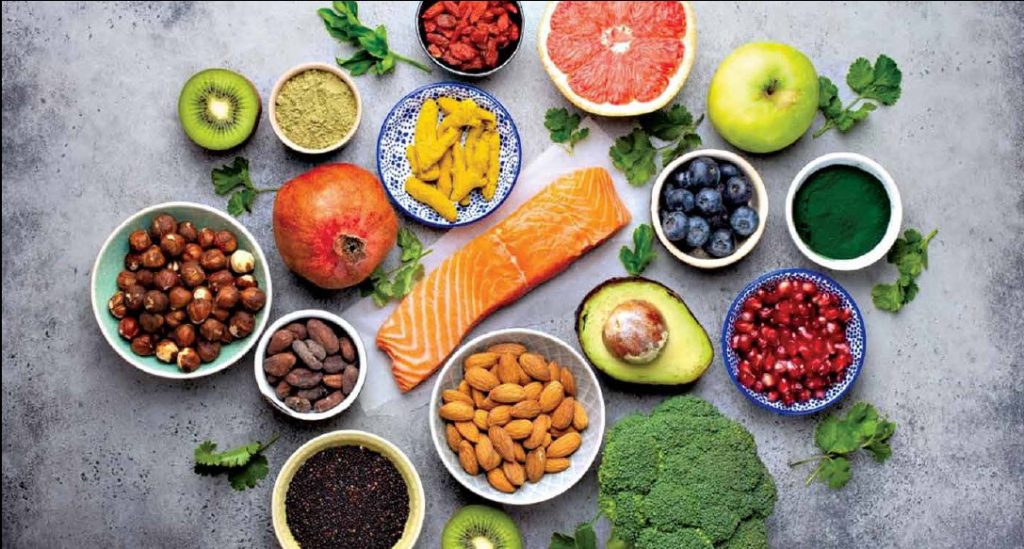 By: Danny Moon
By: Danny Moon
You are what you eat, right? But what does that mean for your health?
Let’s look at the term “anti-inflammatory diet,” as it has been thrown around a lot in the nutrition world lately in relation to lowering inflammation in the body.
Inflammation is part of your body’s normal response to injury or infection. It occurs when your damaged tissue releases chemicals that tell white blood cells to start repairing. However, inflammation sometimes spreads slowly throughout the body and becomes chronic.
This chronic inflammation can lead to long-term damage within your body. It can play a role in the buildup of plaque in your arteries, which will increase your risk of heart disease and stroke. Chronic inflammation is also associated with a higher risk of cancer, diabetes, and other chronic conditions.
How can your food help or hurt?
The choices you make at the grocery store can have an impact on the inflammation in your body.
Research shows that what you eat can affect the levels of C-reactive protein (CRP) — a marker for inflammation — in your blood. That could be because some foods like processed sugars help release inflammatory messengers that can raise the risk of chronic inflammation. Other foods like fruits and veggies help your body fight against oxidative stress, which can trigger inflammation.
The good news is the main foods that act as anti-inflammatories are some of the same foods that keep us healthy! Below are just a few tips to keep inflammation at bay:
- Eat more plants.Whole plant foods have the anti-inflammatory nutrients that your body needs. So, eating a rainbow of fruits, veggies, whole grains, and legumes is the best place to start.
- Antioxidants are key.Antioxidants are the body’s diverse army that helps boost the immune system, neutralize excess free radicals to protect cells, prevent illness, and reduce inflammation. They’re found in colorful fruits and veggies like berries, leafy greens, beets, and avocados, as well as beans and lentils, whole grains, ginger, turmeric, and green tea.
- Get your Omega-3s.Omega-3 fatty acids play a role in regulating your body’s inflammatory process and could help regulate pain related to inflammation. These healthy fats are found in fish like salmon, tuna, and mackerel, as well as smaller amounts in walnuts, pecans, and ground flaxseed.
- Eat less red meat.Red meat can be pro-inflammatory.
- Cut out the processed stuff.Sugary cereals and drinks, deep-fried food, and pastries are all pro-inflammatory offenders. They can contain plenty of unhealthy fats that are linked to inflammation.
To reduce levels of inflammation, it’s best to shoot for an overall healthy diet. If you’re looking for an eating plan that closely follows the rules of anti-inflammatory eating, consider the Mediterranean diet, which is high in fruits, vegetables, nuts, whole grains, fish, and healthy oils.
In addition to lowering inflammation, a more natural, less processed diet can have major effects on your physical and emotional health. A healthy diet is beneficial not only for reducing the risk of chronic diseases, but also for improving mood and overall quality of life.
By: Danny Moon






